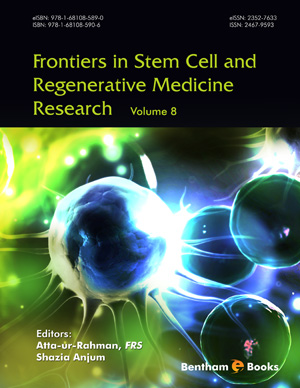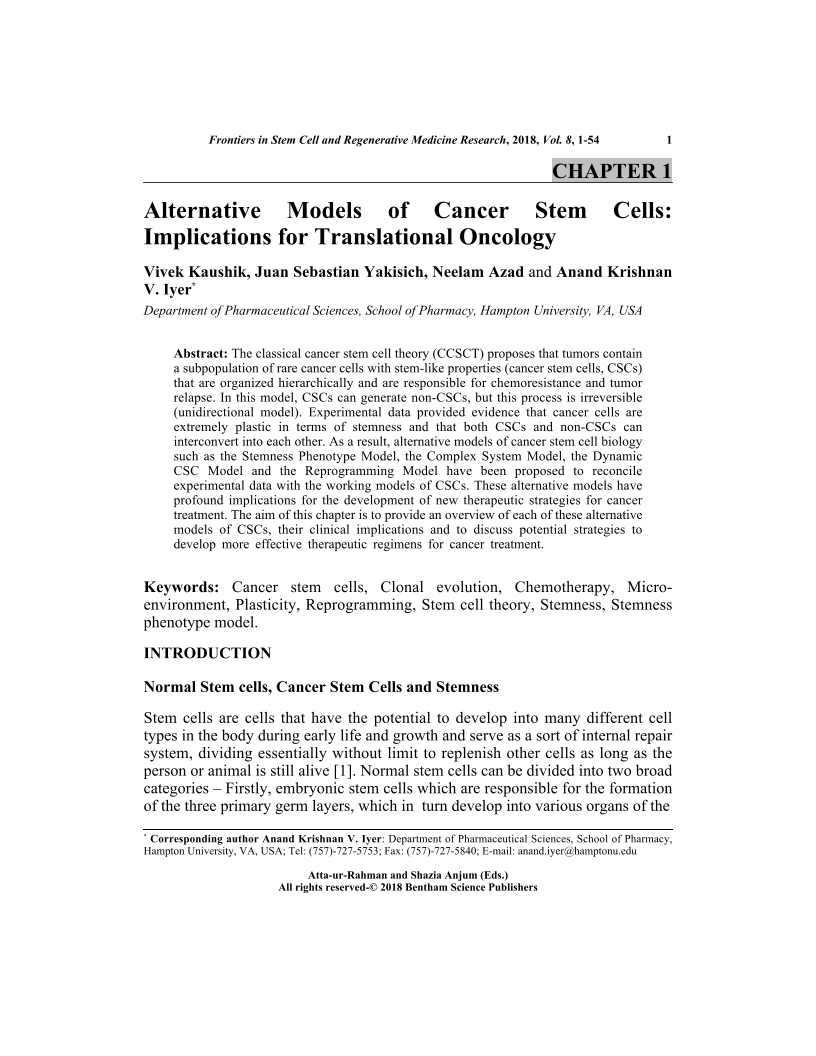Alternative Models of Cancer Stem Cells: Implications for Translational Oncology

- Authors: Vivek Kaushik, Juan Sebastian Yakisich, Neelam Azad, Anand Krishnan V. Iyer4
-
View Affiliations Hide Affiliations4 Department of Pharmaceutical Sciences, School of Pharmacy, Hampton University, VA, USA.
- Source: Frontiers in Stem Cell and Regenerative Medicine Research: Volume 8 , pp 1-54
- Publication Date: August 2018
- Language: English
Alternative Models of Cancer Stem Cells: Implications for Translational Oncology, Page 1 of 1
< Previous page | Next page > /docserver/preview/fulltext/9781681085890/chapter-1-1.gif
The classical cancer stem cell theory (CCSCT) proposes that tumors contain a subpopulation of rare cancer cells with stem-like properties (cancer stem cells, CSCs) that are organized hierarchically and are responsible for chemoresistance and tumor relapse. In this model, CSCs can generate non-CSCs, but this process is irreversible (unidirectional model). Experimental data provided evidence that cancer cells are extremely plastic in terms of stemness and that both CSCs and non-CSCs can interconvert into each other. As a result, alternative models of cancer stem cell biology such as the Stemness Phenotype Model, the Complex System Model, the Dynamic CSC Model and the Reprogramming Model have been proposed to reconcile experimental data with the working models of CSCs. These alternative models have profound implications for the development of new therapeutic strategies for cancer treatment. The aim of this chapter is to provide an overview of each of these alternative models of CSCs, their clinical implications and to discuss potential strategies to develop more effective therapeutic regimens for cancer treatment.
-
From This Site
/content/books/9781681085890.chapter-1dcterms_subject,pub_keyword-contentType:Journal -contentType:Figure -contentType:Table -contentType:SupplementaryData105

